2021 Meeting Speaker List
| Name | Institution | |
|
Ahadova, Aysel Board Member |
Universityhospital Heidelberg Heidelberg, Germany |
|
|
Burn, John Board Member |
Newcastle University Newcastle, United Kingdom |
|
Burn, JohnProf. Sir John Burn MD FRCP FRCPCH FRCOG FRCPE FMedSciNewcastle University, United Kingdom
Chief Investigator of the International Cancer Prevention Programme (CaPP) NIHR Senior Investigator 2011-2019 0ver 500 publications; Over 30,000 citations; H index 86 Current Chief Investigator on grants valued at over £3m, co-investigator on grants of over £6m. Lifetime grant earning in excess of £30m
Accolades
Background
Home Address:18 Sanderson Road, Jesmond, Newcastle upon Tyne, NE2 2DS, UK Date of Birth: 6th February 1952. Married to Linda, two adult children, four grand children Education: Teesdale Comprehensive (formerly Barnard Castle grammar school) Deputy Head Boy. Victor Ludorum 1967, 1968, 1969, 1970 1976 Newcastle Medical School 1st Class Honours, Bachelor of Medical Science 1973. George Smart Prize MB BS 1976 Spence Prize for Paediatrics 1990 MD with Distinction, Newcastle University
Professional Qualifications:
Medical Employment:
Academic Employment:
He helped to create the Centre for Life, which houses an education, and science centre alongside the Institute of Genetic Medicine. He was chair of Newcastle based DNA device company QuantuMDx Ltd for 10 years. In 2020 he stepped back to vice chair. Other former roles include President of the European Society of Human Genetics (2006-2007), Chair of the British Society for Genetic Medicine (2011-2013), Lead Clinician, Northern Strategic Health Authority (2010-2014) and Non-executive Director NHS England (2014-2018). He was knighted in 2010 and chosen as one of the first 20 ‘local heroes’ to have a brass plaque on Newcastle Quayside in 2014. He received the Living North award in 2015 for services to the North East 2000 – 2015. He is also Treasurer and co-Director of the international organisation, Global Variome, which seeks to share knowledge of genetic variation for clinical benefit. Sir John has been Chairman of Newcastle upon Tyne Hospitals NHS Foundation Trust since December 2017. |
||
|
Dominguez-Valentin, Mev Board Member |
Oslo University Hospital Oslo, Norway |
|
Dominguez-Valentin, MevOslo University Hospital
One of the main focus of Dr. Dominguez-Valentin is about Lynch syndrome (LS), that is the most common genetic predisposition for hereditary cancer but remains underdiagnosed. Large prospective observational studies have recently increased understanding of the effectiveness of colonoscopic surveillance and the heterogeneity of cancer risk between genotypes. Dr. Dominguez-Valentin is the curator of the largest database in Lynch Syndrome (PLSD) that aims to facilitate personalized precision medicine for the pathogenic MMR carriers. Dr. Dominguez-Valentin have been using multigene panel testing in familial cancer cases without genetic cause demonstrated by single gene testing, to gain information on to which degree other genes may have been causative for cancer in the patients and their relatives, and to be informed on how such genes were deranged to discriminate between normal and disease-causing variants. In addition, Dr. Dominguez-Valentin et al. analyzed the impact of a subset of VUS on RNA splicing by the use of minigene assays. Dr. Dominguez-Valentin is also interested in unravelling the challenges of implementing the advances in diagnosis of hereditary cancer susceptibility and applying these insights to clinical practice in Latin America. In the Latin American countries, training in human genetics and medical genetics is scarce. Dr. Dominguez-Valentin et al. has brought knowledge on the genetic background of LS in Latin America and may enable the identification of multiple frequent founder variants, which subsequently may be subjected to testing in the areas where they occur. In addition, we have established national and international collaborations in LS that have been crucial, especially in generating knowledge about MMR gene variant classification and sharing of genetic practices within the region. Collaborative efforts aim to ensure that all Latin Americans have access to genetic services and to bring additional awareness to medical professionals and public health leaders. The importance of this finding was recognized by the scientific community, and also by the general public; it was covered by the media in Latin America and have generated more than 20 scientific publications. Dr. Dominguez-Valentin pursues her interest in the genetic epidemiology of hereditary cancers in low-resource setting in Peru. Dr. Dominguez-Valentin et al. have identified a greater proportion of cancer cases than previously described, with a young age of onset and differential profile of the most frequent cancers and analyzed using a gene panel containing 96-cancer associated genes. At educational and mentoring level, Dr. Dominguez-Valentin is co-founder of the Research Experience for Peruvian Undergraduates Program (REPU), active mentor of the international mentoring program in Peru and actively promotes the research of Peruvian scientists in Europe (SINAPSIS). |
||
|
Moeslein, Gabriela Board Member |
Evangelic Bethesda Hospital Duisburg, Germany |
|
Moeslein, GabrielaEv. Krankenhaus Bethesda, Duisburg, Germany
She completed her surgical training at the University of Heidelberg and Düsseldorf, interrupted by a 6 month stipend at the University of Hyogo, where she trained with Prof. Joji Utsonomiya. Further she completed her research year with a DFG-funded stipend to Mayo Clinic, Dept. of Molecular Genetics headed by Prof. Steve Thibodeau. She was chair of the Surgical Dept. at HELIOS St. Josefs-Klinik in Bochum, before she transitioned to the more specialized and dedicated Surgical Center for Hereditary Tumors at the University of Witten-Herdecke in 2015. Here she dedicated most of her surgeries to the field of prophylactic surgery for hereditary conditions, ileoanal and continent pouches (Kock Pouch) and also incontinence surgery. The dedicated center and concept transitioned to the Academic Hospital of the University of Düsseldorf BETHESDA Khs. Duisburg in January 2020. Prof. Moeslein has been a long-standing elected Council member and Director of InSiGHT (International Society for Hereditary Gastrointestinal Tumors) and hosted the biennial meeting in 2009 in Düsseldorf. Together with Prof. H. Vasen she initiated and chaired the Mallorca Group as a European Expert Group on Hereditary Cancer. This group was reformed to the Society of Hereditary Tumors in 2016. She is external advisor of for the CFR (Cancer Family Registries) and is a founding member of the IMRC (International Mismatch Repair Consortium). She is also a founding member of the German Consortium for HNPCC and Steering Committee member. She leads the working group on Hereditary Gastrointestinal Cancer of the German Society of Visceral Surgeons. She was Secretary of ESCP (European Society for Coloproctology) from 2016 – 2020 and is now Program Director. Her research activities focus on prophylactic surgery for hereditary conditions, ileoanal and continent pouches and chemoprevention. She focusses on promoting and enabling collaborative studies and networking and more than 200 peer reviewed publications and book chapters.
EHTG Vision as Chair of EHTG 2021 – 2023As all will recall, EHTG evolved from the Mallorca Group and after 10 years of dedicated meetings and many excellent publications including guidelines for FAP, PJS and Lynch Syndrome, the group decided to open and expand and founded the EHTG as a Scottish Charity in 2016. The 10 year anniversary meeting of the Mallorca Group was therefore the inaugural meeting of EHTG and was held in Mallorca. Meetings followed in Florence in 2017, as a deferred small meeting in order as not to collide but rather liaise with the InSiGHT meeting in 2017. A fantastic meeting in Nice in 2018 followed, and some sessions were jointly performed with ESCP including an excellent Pouch session with renowned experts and another great meeting in Barcelona in 2019. The latter was shadowed by the riots in Barcelona exactly at the time, but all turned out well after all.Needless to say, 2020 was a bad year – we missed seeing you – but it was also financially difficult without an annual meeting and a tedious separation from our secretariat, but led to what the board thinks is an excellent reset in 2021 and now onwards. In this time, importantly, two additional guideline updates following the grade and delphi process have been completed and the FAP guideline update from 2008 is already quite advanced. This takes me to the outline of my vision for EHTG in the next two years in the position as Chair. With our new secretariat led by Gabriela Sponholz we feel very confident again, that everybody`s inquiries and needs are swiftly and competently being taken care of. Gs007 (as we affectionately call her) solves all problems with great expertise and creativity. Our website has been relaunched and we have a wonderful webmaster that will assist us in expanding the features further. The board has grown together and in the times of the pandemic had multiple zoom sessions discussing the best next moves for EHTG. We are very grateful to PROMEGA and the generous educational grant that has enhanced our activities and focusses on education. Next steps:
I truly hope, that after this term will be the right time to step back a bit and make space for others with great ideas for this unique group to take things further. |
||
|
Møller, Pal Board Member |
The Norwegian Radium Hospital Oslo, Norway |
|
Møller, PålMedical Geneticist; senior researcher The Norwegian Radium Hospital, Oslo, Norway
Compliant with the European General Data Protection Regulation (GDPR) PLSD is organized to receive and hold not sensitive data only – leaving the compliance with local ethical and legal regulations to the contributors which is mandatory when compiling international data, the incorporated EHTG being contractor and the PLSD being processor of the data in the GDPR context. Realized in 2019 that nobody was in position to take over and keep going the PLSD Oracle database now including 100K lines of SQL code, and migrated it to the free version of MySQL which is underlying the results to be presented at the 2021 EHTG meeting. His employer The Norwegian Radium Hospital hosts the plsd.eu website which is integrated in the InSiGHT variant database website: InSiGHT classifies MMR variants as pathogenic or not, PLSD reports the penetrance and expressivity of the pathogenic variants. The current MySQL system is integrated in an open ODBC-based framework, facilitating the data to be interactively analyzed with complying software like Excel, R, Pyton, Systat, etc. If PLSD is to be continued, the whole system with front GUIs is to be migrated to Windows 11. The PLSD effort is integrated in the Norwegian Radium Hospitals strategy providing evidence based personal health care to prevent and cure cancer for which reason he is offered continued position to carry the PLSD forward as PI. |
||
|
Sampson, Julian Board Member |
Cardiff University Cardiff, United Kingdom |
|
|
Seppälä, Toni Board Member |
Helsinki University Hospital Helsinki, Finland |
|
Seppälä, ToniProf., University of Tampere, Finland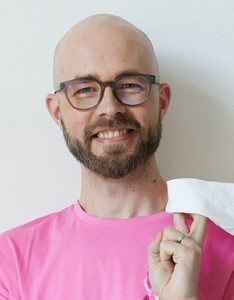
DEGREESTitle of Docent in surgery (experimental), University of Helsinki 28 Nov 2019Specialist (board certification) in gastrointestinal surgery, University of Helsinki 20 Jun 2018 Doctor of Medical Sciences (PhD), University of Eastern Finland 30 Aug 2012 Licentiate of Medicine (MD), University of Eastern Finland 22 Dec 2010 CURRENT EMPLOYMENTProfessor (tenure track) University of Tampere 1 Feb 2022–Professor of Cancer Research Head of personalised cancer management Tampere University Hospital GI surgeon Department of Gastrointestinal Surgery 1 Jun 2018– Helsinki University Hospital, Meilahti Research fellow Johns Hopkins University, Dept. of Surg. Oncology 5 Aug 2019– 2-year appointment 2019-2021 (Sigrid Juselius fellowship) Principal Investigator Research Program Unit / Applied Tumor Genomics 11 Mar 2021– University of Helsinki RESEARCH FUNDING AND GRANTSThe Academy of Finland (500,000 €) 2021–2025Jane and Aatos Erkko Foundation (1,173,000 €) 2021–2025 – Together with co-PIs P. Peltomäki, J-P. Mecklin and M. Nyström Sigrid Juselius 1–3-year grant (150,000 €) 2021–2024 Finnish Cancer Society grant (150,000 €) 2021–2022 iCAN Flagship subproject funding (280,000 €) 2021–2022 HUS State Research Funding (VTR; 20,000 €) 2021 Fellowship Grant, Sigrid Juselius Foundation (140,000 €) 2021–2022 Fellowship Grant, Instrumentarium Science Foundation (40,000 €) 2019–2021 Research Grant, Emil Aaltonen’s Foundation (210,000 €) 2019–2022 Research Grant, Finnish Medical Foundation (150,000 €) 2019–2021 Funded Postdoc position, 12 months (100,000 €; 50% during 2 years) 2017–2018 – Helsinki University Hospital and University of Helsinki Eight foundation grants (several foundations, 10,000 € or less) 2008–2015 RESEARCH OUTPUTTotal number of peer-reviewed original publications: 55 2010–2021– Number of citations: 2228 (Google Scholar 8/13/2021) – h-index: 21 / m-index: 1.91 / i10-index: 29 / Terkko index (12 mo): 143.5 – Helsinki Scholar Chart Ranking (12 mo): 29/455 Other research items, authorships and media output related to research: 30 – TV, online and radio interviews, guideline work, websites (see publications) OTHER KEY ACADEMIC MERITSReviewerPhD thesis: TU medicine (Suvi Sippola) 2021 Reviewer for the Dutch Cancer Society (KWF), funding applications 2018–2020 Reviewer for scientific journals: 42 reviews listed on publons.com 2012–2021 International invited oral presentations 2019– Invited oral presentation: ESCP 2021 virtual annual meeting 2021 Invited oral presentation: RCGG 2021 virtual spring meeting, UK 2021 Invited oral presentation: TUNI special seminar series, Tampere 2021 Invited oral presentation: Oncosys special seminar, UH, Helsinki 2021 Invited oral presentation: ESCP 2020 virtual meeting, Vilnius 2020 Abstract: American Surgical Association 2020, Washington, DC, US (cancelled) 2020 Invited oral presentation: Highlights 2019, CGA 2019, Salt Lake City, UT, US 2019 Invited oral presentation: EHTG 2019, Barcelona, Spain 2019 Invited oral presentation: EHTG 2019, Barcelona, Spain 2019 SCIENTIFIC AND SOCIETAL IMPACTMedical and scientific community service – extensive number of board 2006–2021memberships in scientific, academic, professional and medical societies/organs Editor positions – Hereditary Cancer in Clinical Practice, Frontiers in Oncology 2020– LINK TO FULL BIOGRAPHYhttps://researchportal.helsinki.fi/en/persons/toni-seppälä |
||
|
Sijmons, Rolf Board Member |
UMCG - University Medical Center Groningen, Netherlands |
|
Sijmons, Rolf
Looking at the future, in my opinion, EHTG, that has historically mostly been focused on hereditary gastrointestinal tumours, needs to further expand the tumour types and syndromes it is interested in |
||
|
ten Broeke, Sanne Board Member |
UMCG - University Medical Center Groningen, Netherlands |
|
| Auranen, Annika | University of Turku Turku, Finland |
|
Annika AuranenPenn Medicine - University of Pensylvania
She received her MD degree (1987), specialization to Obstetrics and Gynecology (1999) and specialization to Gynecologic Oncology (2004) from the University of Turku, Finland. She served as consultant in Gynecologic Oncology 2004-2014 in Turku University Hospital, and from January 2015 to August 2018 as Chief of the Gynecologic Oncologic Unit in Tampere University Hospital. Her PhD thesis (1996) focused on hereditary ovarian cancer in Finland. Her post-doc research in Cambridge University (2000-2001) focused on low-penetrance susceptibility genes on ovarian cancer. Other past and current research interests are use of PET-CT on ovarian cancer imaging, endometrial cancer epidemiology and prognostication, and ovarian cancer surgery and use of ctDNA and liquid biopsies in ovarian cancer. She has supervised 3 PhD Thesis and is supervising 3 PhD students. She has more than 50 international peer-reviewed papers. She has been member of NSGO (Nordic Society of Gynecologic Oncology) Board in 2008-2012 and during 2015-2021 (President-Elect 2015-2018, President 2018-2021). She is member of the Finnish Cancer Society Grant Committee since 2018, and chair of the Finnish Steering Board for Cancer screening since 2018 (representing the Finnish National Cancer Center). |
||
| Bauerfeind, Peter | Hirslanden Clinik St. Anna, Gastroenterology, Switzerland | |
Bauerfeind, PeterHirslanden Clinik St. Anna, Gastroenterology, Switzerland
Leaving Munich is not easy for a Bavarian, especially to a country that had the reputation of not being very welcoming to foreigners. To my surprise, life and especially the work in Switzerland was much more pleasant than expected, so that I finally stayed in Switzerland and switched from surgery to gastroenterology. After residencies in Zurich, Lausanne and Liestal, I spent almost 2 years in Baltimore, in a microbiology lab focusing on Helicobacter pylori. Back in Switzerland, I moved from Basel to Zurich to head endoscopy at the University Hospital Zurich for almost 25 years. My focus in this position was and still is interventional endoscopy. For the past 4 years I have been head of the department of gastroenterology and hepatology at the Stadtspital Triemli in Zurich. The long years of presence in the greater Zurich area allowed me to get to know a large number of families with FAP and HNPCC and to care for them to this day. Unfortunately, there is no central register in Switzerland, so cohorts can only be built up on the basis of individual care. My goals for the coming years are to establish a national network in Switzerland and to associate it as closely as possible with the EHTG. In the EHTG, I would like to try to improve the financial situation and to increase the presence and visibility of the EHTG to and with gastroenterologists. |
||
| Buchanan, Daniel | University of Melbourne Melbourne, Australia |
|
| Cavestro, Giulia Martina | Università Vita-Salute San Raffaele Milano, Italy |
|
| Evans, Gareth | Manchester University Manchester, United Kingdom |
|
| Ferreira, Fabio | Hospital Sirio-Libanes São Paulo, Brazil |
|
| Georgiou, Demetra | Cardiff University Cardiff, United Kingdom |
|
| Haag, Martin | University Hospital Heidelberg, Germany |
|
| Hüneburg, Robert | ||
| Katona, Bryson | Penn Medicine - University of Pensylvania Philadelphia, USA |
|
Katona, BrysonPenn Medicine - University of Pensylvania
Bryson is a physician-scientist who is an expert in gastrointestinal cancer genetics, and his research program focuses on the diagnosis, risk assessment, management, and biology of hereditary gastrointestinal cancer predisposition syndromes. Bryson received his BA/MS at the University of Pennsylvania, followed by his MD/PhD at Washington University in St. Louis, and he completed his post-doctoral research in the laboratory of Dr. Xianxin Hua at the University of Pennsylvania. |
||
| Kloor, Matthias | University Hospital Heidelberg, Germany |
|
| Lepistö, Anna Henriikka | University of Helsinki Helsinki, Finland |
|
| Levi, Zohar | Rabin Medical Center Tel Aviv, Israel |
|
| Lipkin, Steven | Weill Cornell Medicine New York, USA |
|
Lipkin, StevenWeill Cornell Medicine; USA, New York
He is Director of the Weill Cornell Medical College Genetics Clinic, where he practice as a Clinical Geneticist and supervise Genetic Counselors in the Departments of Medicine and Genetic Medicine, and Director of the Program in Mendelian Genetics. As a physician-scientist he has published in many well cited journals, including Cell, Cell Stem Cell, Nature Biotechnology, Nature Genetics, Science, Genes and Development, Proceedings of the National Academy of Sciences and Journal of Clinical Investigation, among others. He directs a research laboratory that uses immunology, massively parallel sequencing, computational biology, mouse models, cell culture and genomics to understand the contribution of genetics to, and mechanisms of, hereditary genetic syndromes. Previously he discovered and mechanistically characterized MLH3, a DNA mismatch repair gene colorectal polyposis and cancer predisposition gene, and also identified or co-identified 6 B cell malignancy predisposition genes. One of his current areas of focus is to help drive an international effort to develop and validate a cancer immunoprevention vaccine for Lynch syndrome. The Age of Genomes: Tales from the Front Lines of Genetic Medicine Bound edition from 17 May 2016
A leading geneticist explores what promises to be one of the most transformative advances in health and medicine in history Almost every week, another exciting headline appears about new advances in the field of genetics. Genetic testing is experiencing the kind of exponential growth once seen with the birth of the Internet, while the plummeting cost of DNA sequencing makes it increasingly accessible for individuals and families. Steven Lipkin and Jon Luoma posit that today’s genomics is like the last century’s nuclear physics: a powerful tool for good if used correctly, but potentially dangerous nonetheless. DNA testing is likely the most exciting advance in a long time for treating serious disease, but sequencing errors, complex biology, and problems properly interpreting genetic data can also cause life-threatening misdiagnoses of patients with debilitating and fatal genetic diseases. DNA testing can also lead to unnecessary procedures and significantly higher health-care costs. And just around the corner is the ability to cure genetic diseases using powerful gene-editing technologies that are already being used in human embryo research. Welcome to the Age of Genomes! The Age of Genomes immerses readers in true stories of patients on the frontier of genomic medicine and explores both the transformative potential and risks of genetic technology. It will inform anxious parents increasingly bombarded by offers of costly new prenatal testing products, and demonstrate how genetic technology, when deployed properly, can significantly improve the lives of patients who have devastating neurological diseases, cancer, and other maladies. Dr. Lipkin explains the science in depth, but in terms a layperson can follow. |
||
| Mecklin, Jukka-Pekka | Central Hospital Central Finland Jyväskylä, Finland |
|
Mecklin, Jukka-PekkaCentral Hospital Central Finland
|
||
| Monahan, Kevin | St Mark's Hospital London, United Kingdom |
|
Monahan, KevinSt Mark's Hospital; London, United Kingdom
Dr Monahan undertook his PhD at Cancer Research UK and at St Mark’s Hospital, and has spent 9 years working at West Middlesex University Hospital and Chelsea & Westminster Hospital where he still leads a cancer genetics clinic. He is also an honorary senior clinical lecturer at Imperial College London. Dr Monahan performs genetic testing, endoscopic and other screening for gastrointestinal cancer in susceptible populations, such as those people with a family history of cancer, and also has an interest in prevention and early detection of cancer. He has research interests in clinical and molecular aspects of gastrointestinal pathology, particularly in the field of endoscopy, colorectal, pancreatic and other gastrointestinal cancers
Dr Kevin J Monahan FRCP PhD
|
||
| Nagtegaal, Iris | Radboud UMC Nijmegen, Netherlands |
|
| Naxerova, Kamila | Massachusetts General Hospital Boston, USA |
|
| Nielsen, Maartje | Leids Universitair Medisch Centrum Leiden, Netherlands |
|
Nielsen, MaartjeLeids Universitair Medisch Centrum; Leiden, Netherlands
One of the main goals is to be able to better predict cancer risk and create tailor made surveillance schemes. Her recent work focuses also on carcinogenesis in the Lynch syndrome and polyposis patients by studying the molecular profile of carcinomas and adenomas. |
||
| Pellise, Maria | Clínic Barcelona Barcelona, Spain |
|
| Ricciardiello, Luigi | University of Bologna Bologna, Italy |
|
| Ristimäki, Ari | University of Helsinki Helsinki, Finland |
|
| Sunde, Lone | Aarus University Aarhus, Denmark |
|
| Thomas, Laura E. | Swansea University Medical School Swansea, United Kingdom |
|
| von Knebel-Doeberitz, Magnus | Universityhospital Heidelberg Heidelberg, Germany |
|
| Winship, Ingrid | The Royal Melbourne Hospital Melbourne, Australia |
|
| Yurgulun, Matthew | Dana-Farber Cancer Institute Boston, USA |
|


 Professor of Clinical Genetics, Translational & Clinical Research Institute
Professor of Clinical Genetics, Translational & Clinical Research Institute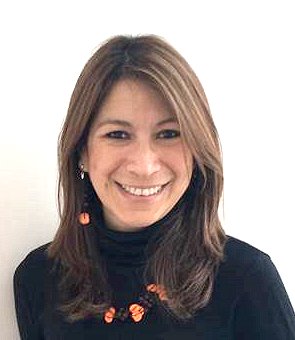 Mev Dominguez-Valentin, PhD is a Scientist at the Department of Tumor Biology of the Institute for Cancer Research from Oslo University Hospital (Norway). Dr. Dominguez-Valentin has had extensive mobility throughout her career, with activity across many countries, and even two continents.
Mev Dominguez-Valentin, PhD is a Scientist at the Department of Tumor Biology of the Institute for Cancer Research from Oslo University Hospital (Norway). Dr. Dominguez-Valentin has had extensive mobility throughout her career, with activity across many countries, and even two continents.
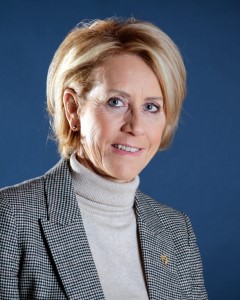 Professor Moeslein is Professor of Surgery and Dept. Head of the newly established Center for
Hereditary Tumors at the Academic Hospital of the University of Düsseldorf Ev. BETHESDA in
Duisburg, Germany.
Professor Moeslein is Professor of Surgery and Dept. Head of the newly established Center for
Hereditary Tumors at the Academic Hospital of the University of Düsseldorf Ev. BETHESDA in
Duisburg, Germany.
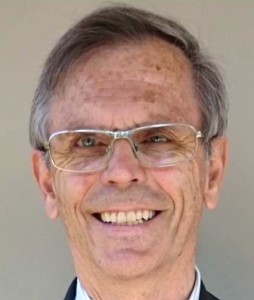 Primary investigator to the PLSD
Primary investigator to the PLSD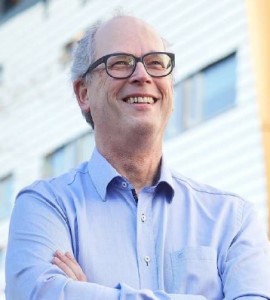 I am senior consultant clinical geneticist and professor of medical
translational genetics at the Department of Genetics, UMCG. I have
been studying familial cancer and counselling patients suspected of
hereditary predisposition for over 20 years. I am organizer of the
nationally accredited UMCG expert centre on familial colorectal
cancer, communicating editor of Human Mutation, board member of
the Dutch Colorectal Cancer Group (
I am senior consultant clinical geneticist and professor of medical
translational genetics at the Department of Genetics, UMCG. I have
been studying familial cancer and counselling patients suspected of
hereditary predisposition for over 20 years. I am organizer of the
nationally accredited UMCG expert centre on familial colorectal
cancer, communicating editor of Human Mutation, board member of
the Dutch Colorectal Cancer Group ( 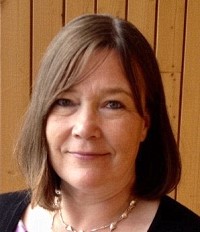 Annika Auranen (MD, PhD) holds the position of Chief Physician and Director of the Regional Cancer Center FICAN Mid (part of the Finnish National Cancer Center FICAN) since September 2018. This regional cancer center is responsible for advancing cancer care and cancer research (basic, translational, clinical and epidemiological) in the 1 million population area around Tampere University Hospital and Tampere University. She is employed by the Tampere University Hospital, and her clinical duties include main responsibility of running clinical trials in gynecological cancer. She has been participating in several clinical trials as sub-investigator, local PI or national PI since 1999. She is member of the Hospital Clinical Trial Unit Board and NSGO-CTU Foundation Board, and also NSGO-CTU Scientific Committee.
Annika Auranen (MD, PhD) holds the position of Chief Physician and Director of the Regional Cancer Center FICAN Mid (part of the Finnish National Cancer Center FICAN) since September 2018. This regional cancer center is responsible for advancing cancer care and cancer research (basic, translational, clinical and epidemiological) in the 1 million population area around Tampere University Hospital and Tampere University. She is employed by the Tampere University Hospital, and her clinical duties include main responsibility of running clinical trials in gynecological cancer. She has been participating in several clinical trials as sub-investigator, local PI or national PI since 1999. She is member of the Hospital Clinical Trial Unit Board and NSGO-CTU Foundation Board, and also NSGO-CTU Scientific Committee.
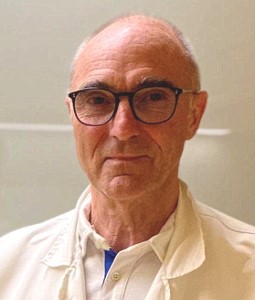 After my school years in very rural Bavaria near Lake Chiemsee, I studied medicine in
Erlangen and Munich. I was lucky that the famous surgeon, Professor Siewert, offered me a
position in his clinic. However, under the condition that after a short surgical training year
with him, I had to go to his gastroenterological friend, Prof Blum in Zurich, for a year.
After my school years in very rural Bavaria near Lake Chiemsee, I studied medicine in
Erlangen and Munich. I was lucky that the famous surgeon, Professor Siewert, offered me a
position in his clinic. However, under the condition that after a short surgical training year
with him, I had to go to his gastroenterological friend, Prof Blum in Zurich, for a year.
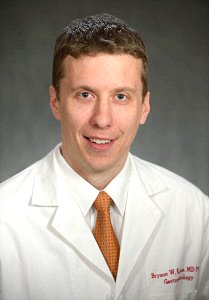 Bryson Katona, MD, PhD is an Assistant Professor of Medicine in the Division of Gastroenterology and Hepatology at the University of Pennsylvania Perelman School of Medicine in the United States, where he serves as the Director of the Gastrointestinal Cancer Genetics Program and Director of the Gastrointestinal Cancer Risk Evaluation Program, and he also is a member of the Cancer Control Program of the Abramson Cancer Center.
Bryson Katona, MD, PhD is an Assistant Professor of Medicine in the Division of Gastroenterology and Hepatology at the University of Pennsylvania Perelman School of Medicine in the United States, where he serves as the Director of the Gastrointestinal Cancer Genetics Program and Director of the Gastrointestinal Cancer Risk Evaluation Program, and he also is a member of the Cancer Control Program of the Abramson Cancer Center.
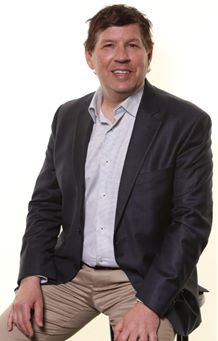 Dr Lipkin is Vice Chair for Research, Weill-Cornell Department of Medicine. He is also a a standing member of the FDA Molecular and Clinical Genetics Panel, which reviews and votes on approval of new genetic tests in the US.
Dr Lipkin is Vice Chair for Research, Weill-Cornell Department of Medicine. He is also a a standing member of the FDA Molecular and Clinical Genetics Panel, which reviews and votes on approval of new genetic tests in the US.
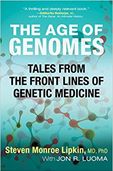
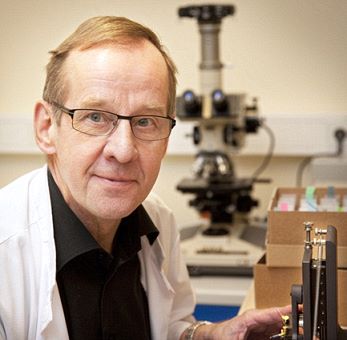 Professor of surgery (emeritus).
Professor of surgery (emeritus).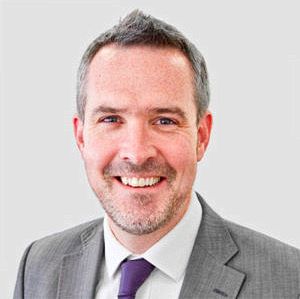 Consultant gastroenterologist at the Family Cancer Clinic & Wolfson Unit for Endoscopy, at St Mark's Hospital who joined in April 2019.
Consultant gastroenterologist at the Family Cancer Clinic & Wolfson Unit for Endoscopy, at St Mark's Hospital who joined in April 2019.
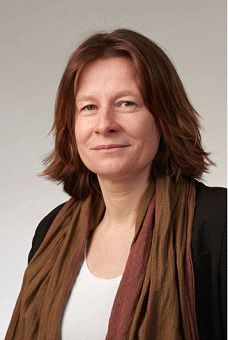 Maartje Nielsen is a PhD and MD at the department of clinical genetics at the Leiden University Medical Center.
Dr. Nielsen’s research primarily focusses on inheritable forms of bowel cancer, uveal melanoma, mesothelioma, and polyposis.
Maartje Nielsen is a PhD and MD at the department of clinical genetics at the Leiden University Medical Center.
Dr. Nielsen’s research primarily focusses on inheritable forms of bowel cancer, uveal melanoma, mesothelioma, and polyposis.